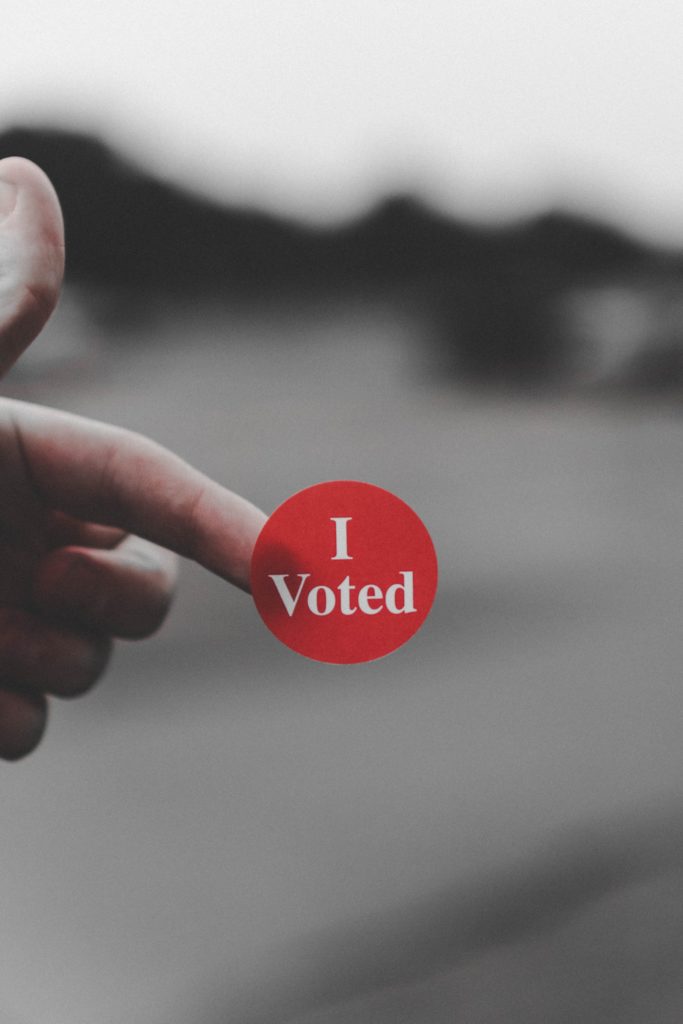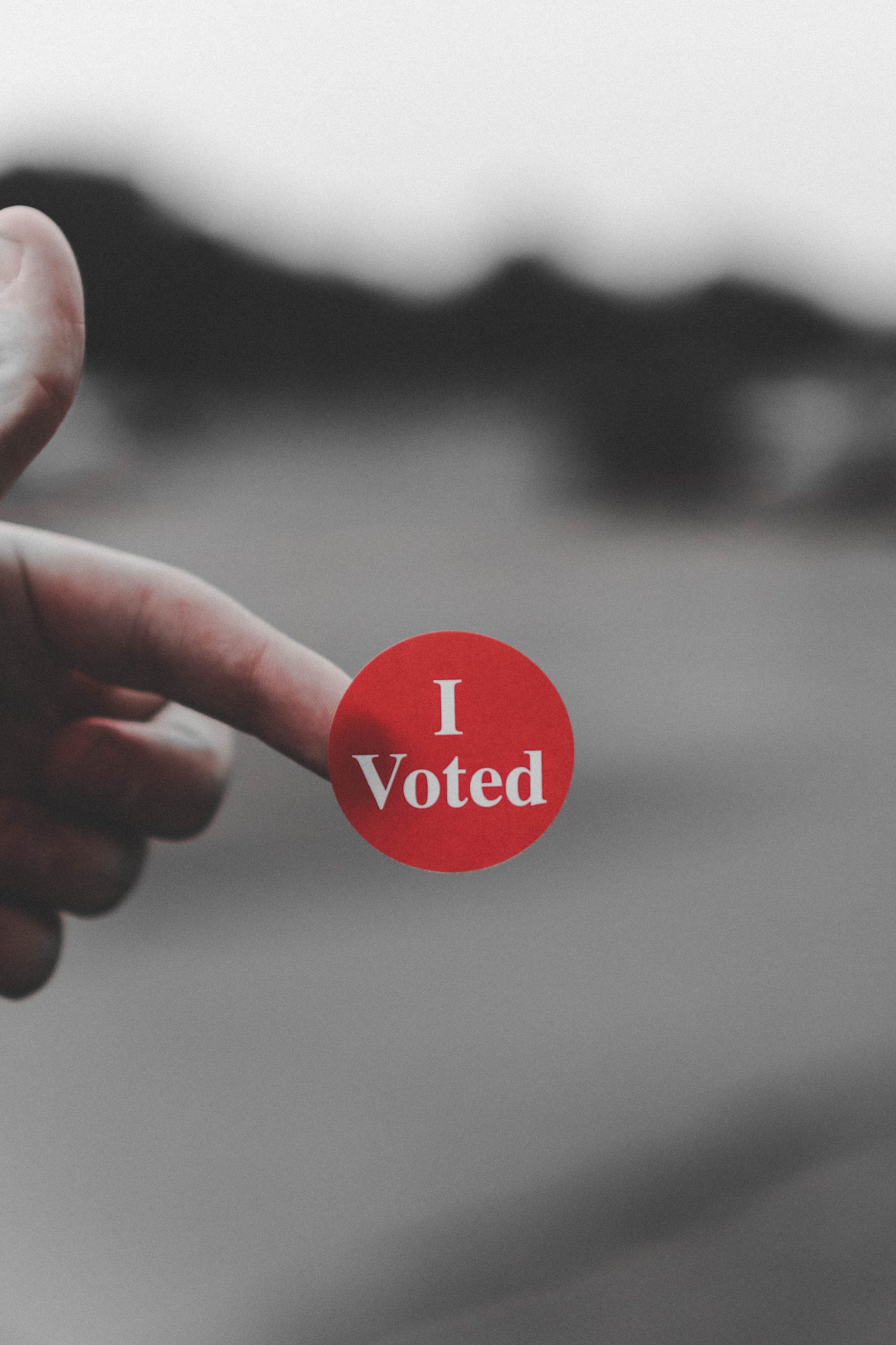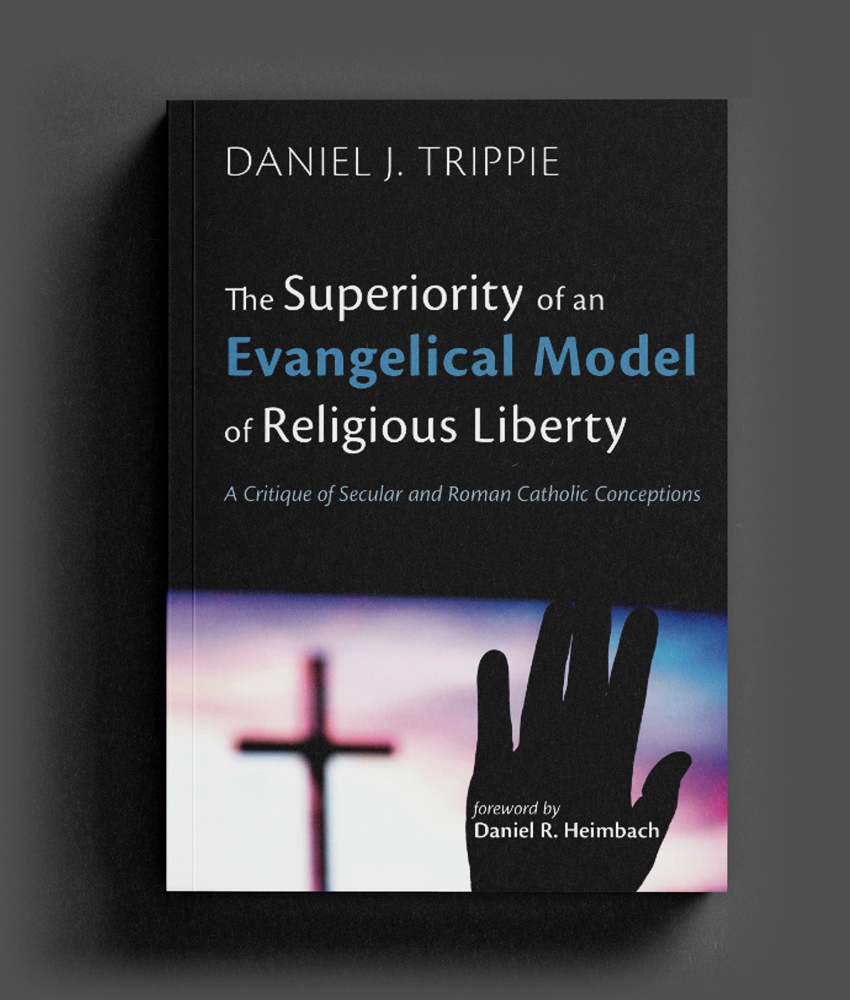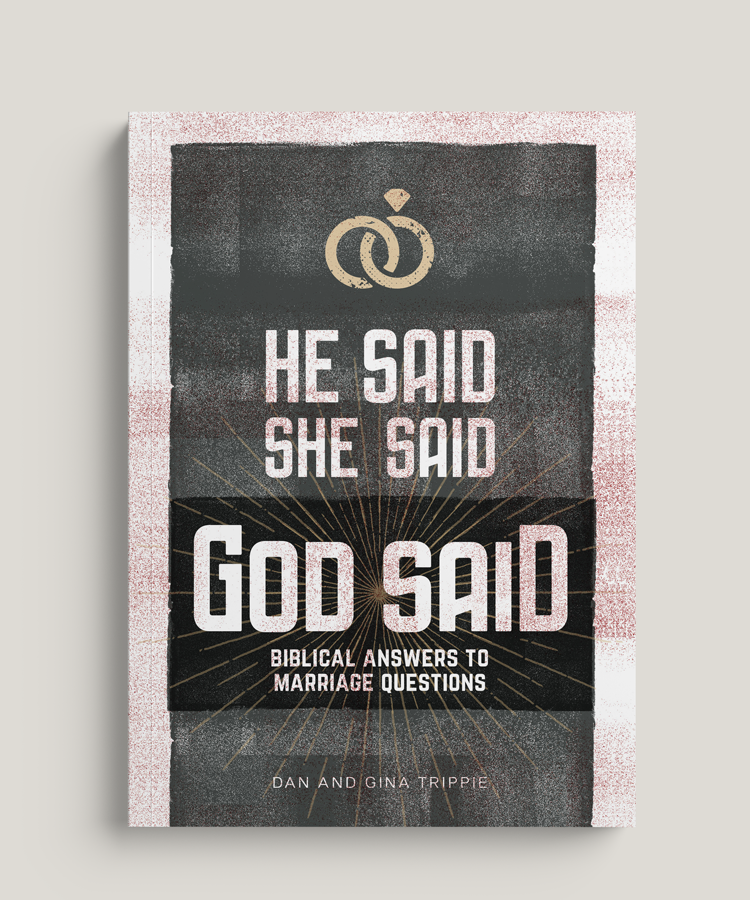
The right to vote is a significant privilege. When people cast ballots, they are doing more than merely making an abstract opinion known—citizens who vote promote overall human dignity. Evangelicals believe that all humans bear the image of God. As image bearers of God, all humans are endowed with the faculty of choice. Voting gives individuals a voice among the collective, and voting promotes human agency because it is a vehicle in which individuals exercise their freedom of choice. Therefore, casting a vote does more than merely getting a candidate elected; voting promotes an overall culture of human dignity.
Sadly, many do not put much thought into voting. Our polarized society has conditioned us to vote robotically. We often cast our vote as a reaction to a particular personality, blind allegiance to a political party, or pure pragmatism. But to do so seems to ignore the reality that voting requires us to labor over difficult ethical questions. Our vote gives voice to theological presumptions, and these assumptions reflect a worldview. Consequently, before casting our vote, we do well to wrestle with some theological categories.
First, we must consider what we believe about human nature. Biblical anthropology does not believe humans are predetermined products of evolution. We are not creatures governed by mere animalistic appetites and blind determinism. Evangelicals believe that humans are creatures with a real capacity for choice. But these choices are made in a world that is corrupted by evil. Christians realize that sin infects all humanity; therefore, sin contaminates every candidate, and sin taints every piece of legislation. When we vote, we must recognize that no party or policy is perfect. History teaches us that attempts at perfection only lead to dehumanization and tyranny. Diverse peoples will never agree on what makes for the ideal society; therefore, we must accept a degree of imperfection with every candidate and policy. We must recognize that perfect is the enemy of the good.
Second, one’s doctrine of sin will inform how one conceives of history. Some see time as an endless pattern of meaningless repetitions. Every four years, we enter a cycle where we vote in the “most important election of our lifetime,” until the next election. Others view time as the process of learning, building, and advancing. We vote for candidates, and they create legislation, and we learn from their successes and failures, and society progresses forward. Many assume that this political progress will endlessly advance until humans make heaven on earth. Some vote thinking that “thy kingdom come” is the result of good public policy.
Nevertheless, biblical eschatology (doctrine of end times) teaches that the Kingdom will not fully come until King Jesus returns. Until that day, God has ordained that human governments restrain evil and protect the human rights of life, liberty, and property. Before John Locke gave us the principles of modern democracy, there stood tablets of stone granting these protections. But attempts by a government to make men moral or create heaven on earth go beyond God’s designed purpose for government. When a government tries to make heaven on earth, it ends up creating a living hell. When we vote, we do well to keep our expectations in check and vote with a proper view of God’s plan and purpose for history.
Third, because no candidate or policy is perfect, we must rely on the faculty of conscience. The human conscience is the moral receptor imparted in every human soul. The conscience makes humans unique among all God’s creation, making us aware of evil in the world. Because the government’s role is to restrain evil, the human conscience must be informed by scripture to determine which actions require legislation and which ones do not. One may argue that evil is obvious, and there is no need for conscience or scripture. But in a complex society, evil is not always easy to see. Evil is often cloaked in a veil of pragmatism, and corruption often ignores the immorality of its means to achieve its ends. And in our postmodern milieu, one’s concept of good will likely be another’s perceived evil. Therefore, Christians must vote with a conscience that is informed by scripture.
Moreover, a sound doctrine of conscience is essential because sin distorts every candidate and complicates every policy––no perfect choice will ever exist. We must accept that we will not agree with every candidate on every issue. In many ways, politics is the art of settling. Therefore, before you head out to vote, take time to consider your assumptions about humanity– what do you really believe about human nature? Before you cast your ballot, think about the role of government–what are you expecting it to do? Before you judge your neighbor’s lawn sign, how robust is your doctrine of conscience?










2 Replies to “An Evangelical Voters Guide”
Thanks Dan! Great non-partisan (politically speak) post.
Thank you Mark